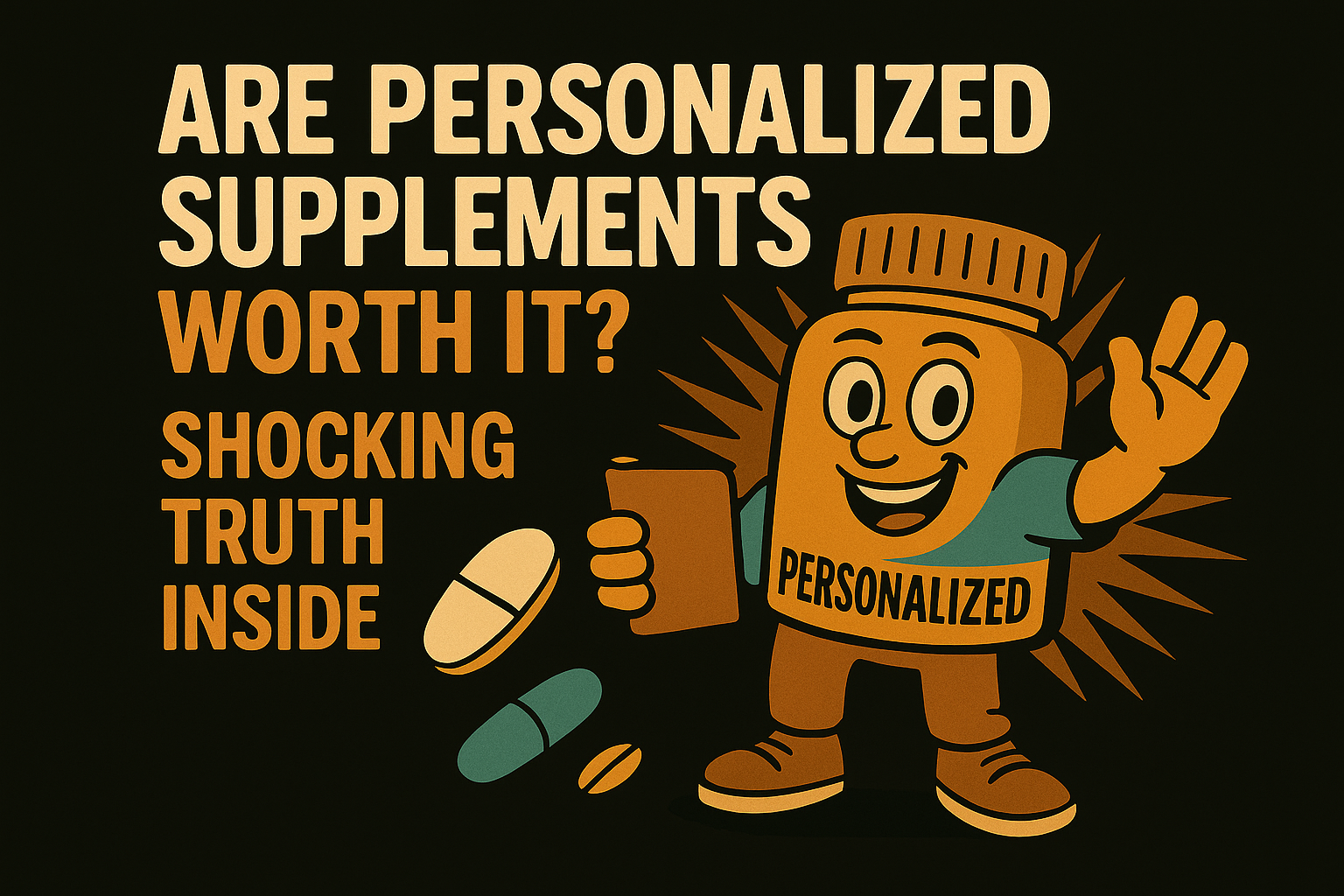You’ve probably seen them online — those sleek supplement brands offering custom-made vitamin packs based on your lifestyle, diet, or even your DNA. It’s called personalized supplements, and they promise to give your body exactly what it needs — nothing more, nothing less.
But are they really worth the hype (and the higher price tag)? Or are you just getting repackaged multivitamins with a fancy quiz?
In this article, we break down what personalized supplements are, how they work, what the science says, and whether they’re right for you.
🧬 What Are Personalized Supplements?
Personalized supplements are tailored formulations made to match your individual health profile. These brands often gather your data through:
- Lifestyle quizzes (diet, sleep, stress, exercise)
- Blood testing (vitamin and mineral levels)
- DNA testing (genetic predispositions)
- Gut microbiome analysis
Based on that, they recommend (and deliver) a custom set of vitamins, minerals, herbs, or probiotics.
Popular services in the UK include Bioniq, VitaminLab, and Nourished — all offering different levels of testing and customization.
🔍 What Makes Them Different from a Multivitamin?
A typical multivitamin gives you a broad range of nutrients, often in generic amounts. But with personalized supplements, you’re (in theory) only getting what you need — and not what you don’t.
Some benefits include:
- Avoiding overdosing on fat-soluble vitamins like A, D, E, and K
- Targeting real deficiencies backed by data
- Reducing pill load by combining multiple ingredients
- Potentially improving absorption and efficacy
🧪 What Does the Science Say?
While the idea of personalized supplements is compelling, research is still catching up. Here’s what we know:
- Nutrient testing is helpful: Blood tests can reveal deficiencies that may impact mood, immunity, energy, or sleep.
- DNA testing is promising, but early: Genetic analysis can flag potential issues (like poor B12 absorption), but isn’t always a guarantee you’ll benefit from a supplement.
- Lifestyle quizzes are useful, but limited: These rely on self-reporting, which may not be accurate or clinically useful.
In short: Personalized supplements may help if they’re based on real data — but be wary of companies using superficial quizzes to upsell products.
💸 Are They Worth the Cost?
Let’s talk numbers.
| Type | Cost (monthly) |
|---|---|
| Basic Multivitamin | £5–£15 |
| Personalized (quiz-based) | £30–£50 |
| Personalized (with testing) | £80–£150+ |
If you’re generally healthy, eat well, and don’t have major symptoms, a high-quality multivitamin might be enough. But if you’ve struggled with energy, digestion, hormone balance, or chronic fatigue — personalized supplements could help uncover and correct imbalances.
✅ When They Might Be Worth It
You may benefit most from personalized nutrition if you:
- Have ongoing unexplained symptoms
- Take multiple separate supplements already
- Suspect you’re missing something despite a healthy diet
- Are managing a specific condition (e.g. PCOS, IBS, thyroid imbalance)
- Are recovering from illness, burnout, or long-term stress
In these cases, investing in targeted solutions might save you time, money, and trial-and-error guessing.
❌ When They’re Probably Not Needed
- If you’re just “trying to be healthy” and eat a balanced diet
- If you’re already taking a high-quality multivitamin
- If the brand relies only on a lifestyle quiz without lab testing
- If the monthly cost outweighs any noticeable benefit
🧠 Final Thoughts: Smart or Just Smart Marketing?
Personalized supplements are part of a growing movement toward bio-individual health — and they’re here to stay. While not all services are created equal, some offer meaningful insight into your nutritional needs and a practical way to fill the gaps.
Are they worth it? That depends on what you’re solving for.
If you’re curious, start with a brand that offers clear transparency, lab testing, and the ability to review your data. Otherwise, you might just be paying premium prices for what’s already in your kitchen cupboard.

👉 Like this article? Share it on Facebook 💬
➡️ Join our private Facebook group here! [Join Now]

Leave a Reply